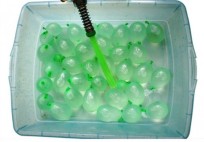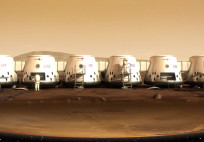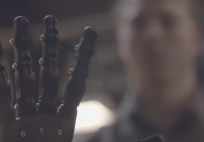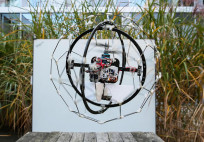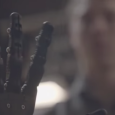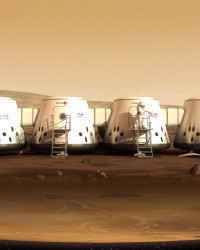
Mars One has selected 50 men and 50 women finalists from which it will choose the first astronauts it will fly on a one-way trip to Mars. These candidates were chosen out of a pool of 202,586 applicants. The finalists hail from several parts of the Earth: 39 are from the Americas, 7 are from Africa, 31 are from Europe, 16 are from Asia, and 7 are from Australia. They will be tested and trained to work as a team.
They will also have to undergo isolation exercises. During a Mars 500 isolation experiment in Moscow, Russia, in 2011, six male volunteers were confined to a mock spaceship for 17 months to see if humans can stay healthy and sane for a six-month trip to Mars.
To colonize Mars, 24 people will be rocketed to the Red Planet. The group will be broken up into six crews made up of four people each. Starting in 2024, each crew will be sent to Mars every two years.
In order for a human colony to survive, nonetheless, new technology would need to be developed if a recent MIT study is correct. According to the study, humans would suffocate in 68 days because there is currently no system that can work in space to remove excess oxygen out of food that will be grown in the colony’s habitats.
How will they drink water? Mars One plans to melt ice that has been reportedly found by the Mars Phoenix lander. Again, nonetheless, there is nothing out yet that can bake water out of soil in space.
Mars One expects to launch the first load of provisions using six Falcon Heavy Rockets, so it can be on Mars before the humans land. MIT researchers estimate that the supply launch alone will require 15 Falcon Heavy rockets. This initial launch plus the crews’ trip will cost $4.5 billion. Researchers went on to project this cost to rise as equipment for the mission is bought and built.
“Mars One estimates the cost of putting the first four people on Mars at six billion US$,” the Mars One website reads. “The six billion figure is the cost of all the hardware combined, plus the operational expenditures, plus margins. For every next manned mission, Mars One estimates the costs at four billion US$.”
One of the 100 finalists believes that anybody who is first at doing something will always be mocked. She is a 35 year-old secondary school laboratory technician from Beckenham, Kent in London, named Alison Rigby. She is a chemistry graduate who will fulfill a lifelong passion if she gets to fly to Mars.
“I grew up in the 80s watching shuttle launches, but always used to think that space travel was just for the Americans,” Ms. Rigby said. “When the opportunity came up I had to put my name forward.”
Ms. Rigby filmed a speech she rehearsed multiple times to apply for the Mars One mission; throughout the video, she stressed how this mission will benefit all mankind. She underwent a medical exam and was then interviewed for 15 minutes. During the interview she was questioned on previous missions to Mars and what were Mars One’s plans. Ms. Rigby responded correctly to all the questions.
Ms. Rigby states that most of her friends and family approve of her decision to apply to be sent to Mars. However, she hasn’t told her mother she’s a finalist yet because she dislikes the idea. Her mother felt Ms. Rigby would be chosen if she applied and dreaded the idea of never seeing her daughter again.
She did admit that she was scared.
“It’s something that has never been done before, it’s a leap into the unknown,” Ms. Rigby said. “When people ask me why I am going to Mars to die, I say we are all going to die, but it’s important what you do before you die.”
A 54-year-old architectural project manager from Reno, Nevada named Radzick Warren is another one of the 100 finalists who is thrilled to be rocketing to the Red Planet.
“It’s a dream-come-true to be this much closer to being a part of what’s to be a growing settlement on Mars,” Ms. Warren said. “It has always been a goal to make a difference, to be part of the difference. It’s a truly exciting time.”
She is eager to be included in the first crew of four people what will fly to Mars in 2024.
“I’m very adaptable and I’m very resilient,” she said. “I’m an adventuress. I don’t have a problem with this (Mars mission). I have gotten a lot of positive feedback from family and friends. A lot of them said, ‘I’d never do this, but you’d be perfect for it.’ ”
She states that her husband supports her decision to colonize Mars although she will never return.
“I have agreed, in my mind, to never coming back,” Ms. Warren said. “However, technology is growing in leaps and bounds. Who is to say that 10 years after the first colony, there isn’t going to be a way to go to Mars and back again?”


